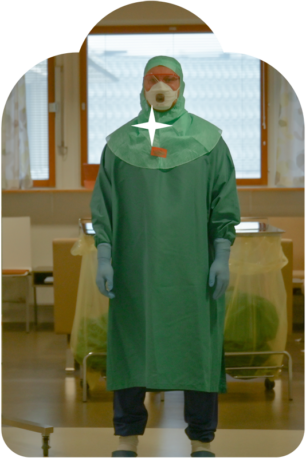Concern about the burden on intensive care units
The purpose of intensive care is to prevent a temporary danger to life. Intensive care is always individual, and the treating physician, together with other professionals, assesses when intensive care is needed. Intensive care is hard for the patient and, if provided on the wrong grounds, causes unnecessary suffering for the patient. When the coronavirus pandemic started to affect Finland, it was feared that intensive care units would run out of beds. The average time spent in intensive care is usually three days, while coronavirus patients stay in intensive care on average for two weeks.

Chief Physician Mika Valtonen and intensive care nurse Sanna Nerjanto discuss their work and the feelings it arouses with hospital chaplain Harri Heinonen.
Cynicism has no place on the job
A patient entering intensive care is critically ill. This places great ethical demands on those working in intensive care. These are always primarily linked to the patient’s interests, but it is also important to take care of the patient’s loved ones. Medical staff may be confronted with many emotions from patients and their loved ones. The interviewees emphasise the human approach to both themselves and encounters with others. Death is part of the job, and grief is an integral part of that.
Medical staff also feel grief and that is normal – even desirable. The interviewees emphasise the importance of discussing and confronting emotions in order to avoid cynicism in their work. Processing their emotions together with co-workers helps professionals maintain their functional capacity.
Thank you.
You were not alone with your feelings.
{{ parseInt(result.result_count * 100 / totalVotes)}} %
{{ result.result_name }}



